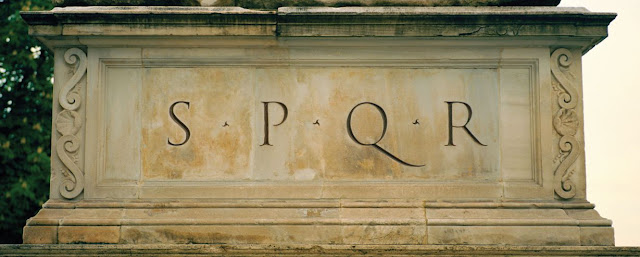The aediles were originally purely plebeian officers, assistants of the tribunes, as the quaestors were assistants of the consuls, and were elected, like the tribunes themselves, in the concilium plebis.
A complete change, however, came over the office as a result of the creation in 367 of two new officers with the same title who were true magistrates of the whole people and as such were elected by the comitia tributa. Henceforward the connection with the tribunate is forgotten (1) and the four aediles act largely together as a single "college". Some differences between the plebeian and "curule" aediles remain; the former must always be plebeians, the latter are elected in alternate years from the two orders; the curule aediles have not only the curule chair from which they derive their name but also the magisterial praetexta, whereas the plebeian aediles, like the tribunes, have no outward sign of their office, and are in general considered to hold a lower rank.
The duties of the office, though rather heterogeneous, can be described as in the main municipal. The aediles were responsible for the cura urbis, which included the supervision of cleanliness in the city, the repair of roadways, public places and public buildings, and the water supply. They were also in charge of the corn supply and of some of the public games, and had some share in the control of the state archives. In connection with their general cura urbis they exercised a certain amount of minor criminal jurisdiction, for they had coercitio (the general magisterial right of enforcing order and obedience their commands by imprisonment, seizure of pledges and money fines), but had to bring their sentences before the people for review when they inflicted fines beyond a certain maximum. This is an anomaly of which the explanation is uncertain; the aediles had no imperium and could not summon the assembly for any other purpose.
Their most interesting function from the point of view of legal history is the control of the market-place, for in connection with it the curule aediles (2) exercised a certain amount of civil jurisdiction for the purpose of which they issued edicts corresponding to those of the praetors; these edicts were of great importance in the development of the law of sale.
----------
(1) So much so that the aedileship ranks higher than the tribunate.
(2) This jurisdiction was not shared by their plebeian colleagues, probably because at the time when it was instituted the plebeian aediles had not yet acquired the character of magistrates of the people.
----------
- The republican constitution
+ The republican constitution: Elements
+ The struggle between the orders
+ The assemblies of the people
+ Characteristics and procedure of roman assemblies
+ The Senate
+ The consulate
+ The praetorship
+ The quaestorship
+ The censorship
+ The tribunate
+ The dictatorship
+ The minor magistrates
----------
Source:
Historical introduction to the study of Roman law, H. F. Jolowicz, pages 48 - 49.
